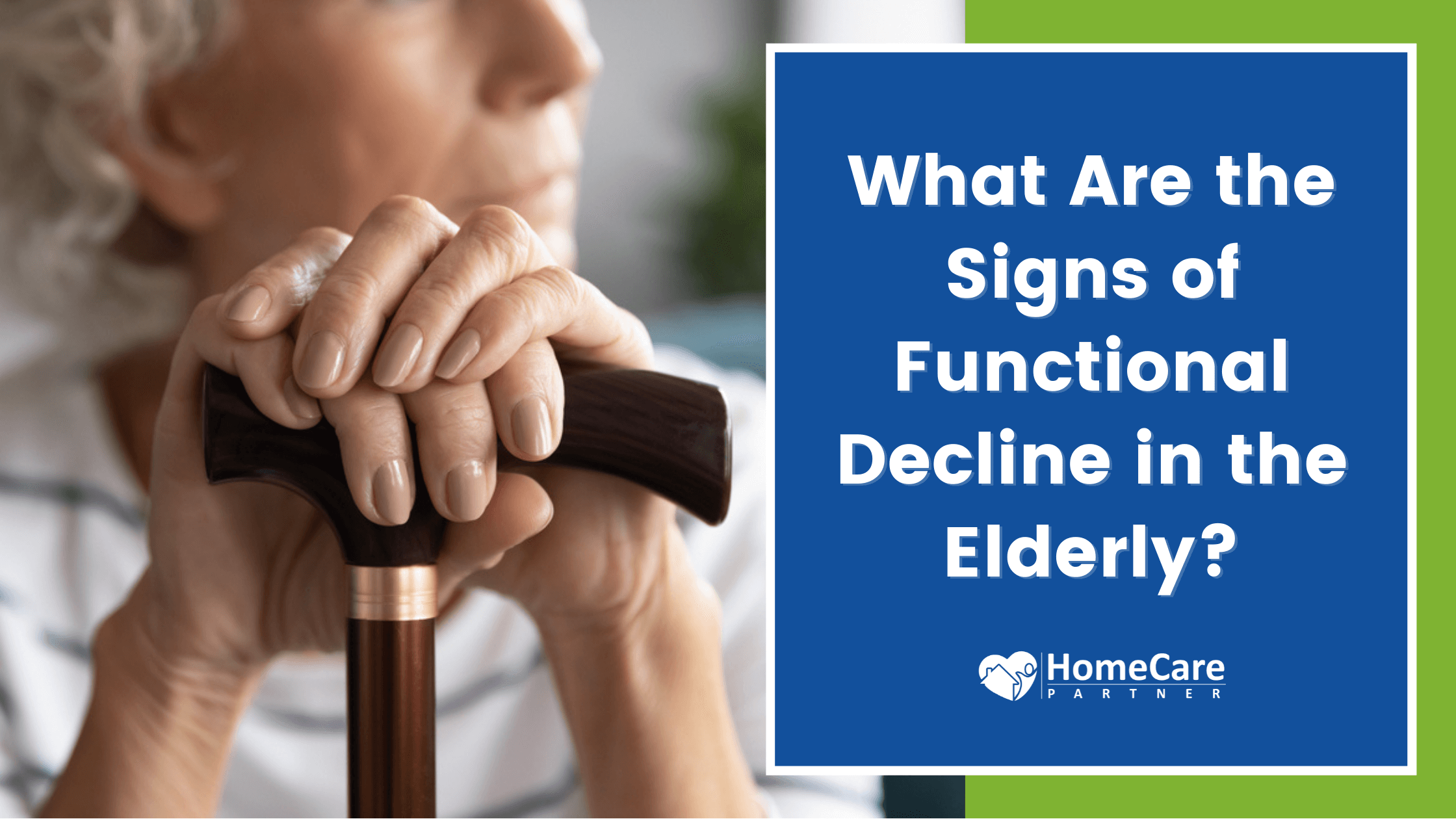


Functional decline is a gradual loss of physical and cognitive functioning, causing difficulty in performing activities of daily living, including bathing, dressing, ambulating, toileting, moving, and more. It occurs due to hospitalization or gradually develops after the age of forties and fifties.
Taking care of your elderly parents can be overwhelming because they may require assistance to complete their daily activities. Furthermore, most of the time, the functional decline in the elderly goes unnoticed due to its slow progression. As a result, they might not get the care they need. Therefore, it is crucial to learn the causes and signs of functional decline in the elderly.
Elders usually develop functional decline when they are hospitalized due to:
Moreover, some health conditions can cause functional decline, including:
Functional decline develops during the middle stages of Alzheimer’s disease, as the brain forgets to make the muscles work to feed, walk, control urine, etc. This will further progress during the late stages when the physical activities like walking and moving are severely limited.
Parkinson’s is a brain disorder causing uncontrollable movements, such as stiffness, shaking, and difficulty in balancing and coordination. As the condition progresses, patients may experience cognitive decline and difficulty walking and talking.
Multiple Sclerosis is an autoimmune disorder affecting the central nervous system, brain, and the spinal cord. It is associated with numbness in the arms or feet, muscle weakness, and balance issues which impact walking, sitting, and fine motor skills (opening and closing zippers, dialing the phone, etc.).
This occurs when the blood supply to the part of the brain is reduced or interrupted due to blocks or leaks in blood vessels. It can cause weakness or paralysis of limbs and the ability to perform physical activities.
Learn more about the difference between parkinsons vs ms here.
People suffering from heart diseases and those who have undergone heart surgery or had a heart attack may have difficulties carrying out and participating in their daily living activities.
Here are the seven common signs of functional decline in the elderly:
Misplacing important items like house keys and walkers or leaving them in a store or restaurant is a sign of cognitive functional decline.
Difficulty standing for a long period of time, moving around, or getting up from bed indicates physical functional decline. This functional impairment makes them susceptible to repeated fall injuries, causing bruises and wounds.
Common signs of compromised cognitive function include anxiety, confusion, memory problems, irritability, aggression, unexplainable behavior, and more.
People with functional decline may face challenges in performing everyday tasks involving gross and fine motor skills, such as driving to complete an errand, sitting, standing, etc.
Changes in appearance (like weight loss or gain) or behavior (anger or depression) and lack of interest in self-care (combing their hair, wearing clean clothes, brushing and flossing their teeth, bathing, etc.) indicates your elderly parents are changing.
If your home looks cluttered and disorganized due to piled-up papers, boxes, and laundry, it highlights that your elderly parents are unwell. This may prevent them from keeping your home tidy.
Changes in appetite like eating more or less than usual and unwillingness to eat alone are signs of physical or cognitive decline.
If you find any of the above-mentioned functional decline signs in your elderly parents, you will need to keep a closer eye on them and be there if they need any assistance. However, if you cannot be with them due to work or other commitments, consider hiring a professional caregiver in Encino or nearby cities.
While fulfilling your parent’s caregiver needs, professional caregivers will offer them companionship, engaging them in conversations and activities. This will help them age in peace while enhancing their well-being and quality of life. You will also rest assured that your parents are well-cared even when you are not around.
If you are looking for affordable in-home elderly care services, contact us today at Home Care Partner. Our trained caregivers offer your loved ones the much-needed assistance and support. We also offer home care services for elders with chronic conditions, such as Alzheimer’s, Parkinson’s, Multiple Sclerosis, and Stroke.

Home Care Partner wants you to be confident in choosing us. We want to show that our care is unmatched!

Get 20% OFF a week's worth of care!
We want to show you that our care is unmatched.
Leave a Reply
Your email address will not be published. Required fields are marked *